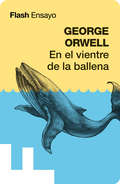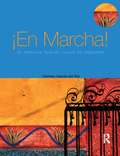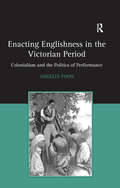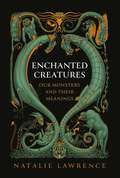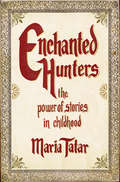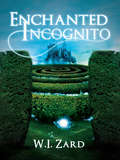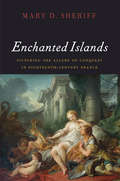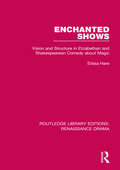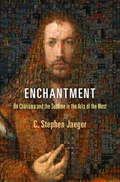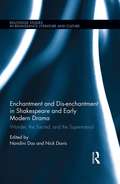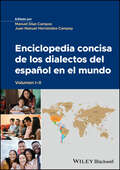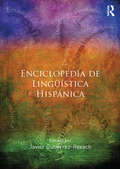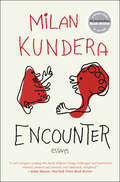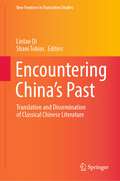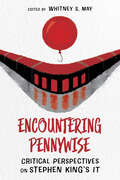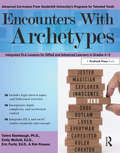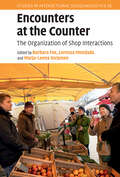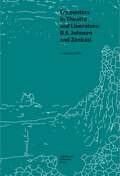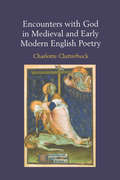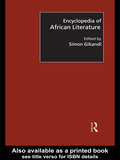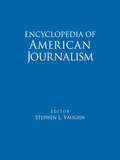- Table View
- List View
En el vientre de la ballena
by George OrwellUno de los ensayos más célebres de George Orwell, en el que disecciona el ambiente social y literario en la Europa de los años treinta. <P><P>En el vientre de la ballena es un ensayo dividido en tres partes donde el autor emplea el relato bíblico de Jonás y la ballena para ejemplificar la actitud conformista imperante en los años treinta, periodo caracterizado por la pasividad e indiferencia ante las graves circunstancias políticas y sociales que se vivían entonces. <P>Tras un turbulento comienzo de siglo marcado por la Primera Guerra Mundial, la Revolución Rusa y la Guerra Civil española, y con la inminente declaración de una nueva guerra, parte de la sociedad parecía haberse rendido y dejado de luchar. <P>Orwell ve en el escritor norteamericano Henry Miller el reflejo de esta conducta, plasmada en su primera obra Trópico de Cáncer. A pesar de que Orwell admiraba la obra y la prosa del ecritor, creía que, dada su falta de denuncia y compromiso político, éste aceptaba la barbarie de la época; un acto en sí de gran irresponsabilidad. <P>George Orwell examina también el panorama de la literatura inglesa de los años veinte y treinta. Destaca las grandes diferencias entre las generaciones de escritores-autores de principios de siglo como James Joyce, T.S. Eliot y Ezra Pound -frente a la generación de entreguerras de W.H. Auden y Stephen Spender-, y la respuesta de todos ellos ante los grandes conflictos sociales y políticos que les tocó vivir.
En los márgenes: Conversaciones sobre el placer de leer y escribir
by Elena FerranteEl «cuarto propio» de Elena Ferrante: las lecciones de literatura de la autora que más intriga al mundo, con más de veinte millones de lectores «La voz de Elena Ferrante, junto a la de sus personajes —no solo Lila y Lenù, sino todas las mujeres que hablaron en sus novelas—, nos dicen en este libro: aquí estoy yo».Annalena Benini, Il Foglio «Una escritora clásica en el sentido maravilloso de la palabra».Milena Busquets La maravilla de descubrir la lectura y la escritura desde la infancia, los recuerdos de las primeras páginas escritas, sus olores y lugares, y luego los grandes hallazgos, desde los nombres canónicos de la literatura universal hasta las autoras que la han iluminado, impregnan estas lecciones magistrales que ha impartido Elena Ferrante invitada por la Cátedra Umberto Eco de la Universidad de Bolonia. En este recorrido histórico y personal por la inspiración y su vocación de escritora, la autora más enigmática de la actualidad desvela también sus consejos sobre la creación de personajes y la trama. Desde Shakespeare hasta Gertrude Stein, pasando por las obras de Diderot, Jane Austen o Virginia Woolf, y culminando con Dante y su Beatrice, Ferrante entrelaza lecturas y reflexiones con su propia obra y su vida, sobre las que por primera vez se confiesa en una nueva intimidad con sus lectores. La crítica ha dicho sobre este libro:«Un viaje extraordinario que se adentra en la construcción de sus obras maestras».Riccardo de Paolo, Il Mattino «Si alguien todavía duda de si las novelas de Ferrante las ha escrito un hombre, os aseguro que En los márgenes disipará cualquier asomo de duda».Quotidiano Nazionale «Otro libro ineludible de Elena Ferrante».Libri e Parole «Una fusión coral de talentos femeninos».Michaela K. Bellisario, IoDonna «Ferrante evoca los orígenes de la escritura y el sentido de la ortografía [...] a través del diálogo que tienen sus textos con otros. No falta ninguno de sus referentes: de Virginia Woolf a Diderot pasando por Emily Dickinson».La Repubblica «Cuatro ensayos públicos, íntimos y antagónicos sobre la escritura».Il Sole 24 Ore La crítica ha dicho sobre Elena Ferrante:«En mi mesilla de noche están los diarios de Virginia Wolf, los relatos de Chéjov y las novelas de Elena Ferrante».Leïla Slimani «No se dejen engañar. El mayor misterio no es quién es o quién deja de ser Elena Ferrante [...]: el misterio es su escritura y su capacidad de evocación. Un fenómeno torrencial, magnético, imparable».Quico Alsedo, El Mundo «El tiempo ha demostrado que a la ferocidad de su escritura y al ritmo de sus relatos nadie es capaz de resistirse. [...] La sensación que tienes al leerla es como si te abriesen en canal para enseñarte tus vergüenzas, las entrañas. Es incómoda y adictiva».Marina García Diéguez, Revista Mercurio «Una maestra retratista de todo lo que nos preocupa, de todo lo que nos duele. Es difícil encontrar alguien de quien decir esto y que aún esté entre nosotros. Que en vida ya sea un clásico».Víctor M. González, GQ «Ferrante me han tenido atado al sillón, leyendo y celebrando».Juan Marsé «Me ha capturado. Me ha causado un gran impacto».Elizabeth Strout
En marcha An Intensive Spanish Course for Beginners
by Carmen Garcia del Rio Eva MartinezEn Marcha is an intensive course in Spanish for beginners. Systematic and comprehensive, it takes the student from beginner's to upper intermediate level in one year. Carefully graded exercises and expert grammatical explanations are combined with lively activities and an attractive presentation to develop the four key skills of listening, speaking, reading and writing. The material is organised in 8 units, each unit introduces new language and provides a variety of activities to practise that language, with clear instructions guiding the student and regular summaries of key points.The units also provide sections for self-study which consolidate material learnt in class, as well as a full key to the exercises. Additional material includes audio files to accompany the book available free to download at www.routledge.com/cw/rio, a grammar reference index, and lists of essential vocabulary in easy-to-learn groups.
Enacting Englishness in the Victorian Period: Colonialism and the Politics of Performance
by Angelia PoonAngelia Poon examines how British colonial authority in the nineteenth century was predicated on its being rendered in ways that were recognizably 'English'. Reading a range of texts by authors that include Charlotte Brontë, Mary Seacole, Charles Dickens, Rudyard Kipling, and H. Rider Haggard, Enacting Englishness in the Victorian Period focuses on the strategies - narrative, illustrative, and rhetorical - used to perform English subjectivity during the time of the British Empire. Characterising these performances, which ranged from the playful, ironic, and fantastical to the morally serious and determinedly didactic, was an emphasis on the corporeal body as not only gendered, racialised, and classed, but as (in)visible, desiring, bound in particular ways to space, and marked by certain physical stylizations and ways of thinking. As she shines a light on the English subject in the act of being and becoming, Poon casts new light on the changing historical circumstances and discontinuities in the performances of Englishness to disclose both the normative power of colonial authority as well as the possibilities for resistance.
Enchanted Creatures: Our Monsters and Their Meanings
by Natalie LawrenceA fascinating journey through 15,000 years of history, exploring the incredible variety of monstrous creatures we have created and what they can tell us about ourselves.The hydra rears its many heads in a flurry of teeth and poisonous fumes. The cyborg lays waste to humanity with a ruthless, expressionless stare. From ancient mythology to modern science fiction, we have had to confront the monsters that lurk in the depths of our collective imagination. They embody our anxieties and our irrational terrors, giving form to what we don't wish to know or understand. For millennia, monsters have helped us to manage the extraordinary complexity of our minds and to deal with the challenges of being human. In Enchanted Creatures, Natalie Lawrence delves into 15,000 years of imaginary beasts and uncovers the other-worldly natural history that has evolved with our deepest fears and fascinations. Join Lawrence on a tour of prehistoric cave monsters, serpentine hybrids, deep-sea leviathans and fire-breathing Kaiju. Discover how this monstrous menagerie has shaped our minds, our societies and how we see our place in nature.
Enchanted Hunters: The Power of Stories in Childhood
by Maria TatarHighly illuminating for parents, vital for students and book lovers alike, Enchanted Hunters transforms our understanding of why children should read. Ever wondered why little children love listening to stories, why older ones get lost in certain books? In this enthralling work, Maria Tatar challenges many of our assumptions about childhood reading. Much as our culture pays lip service to the importance of literature, we rarely examine the creative and cognitive benefits of reading from infancy through adolescence. By exploring how beauty and horror operated in C.S. Lewis's Chronicles of Narnia, Philip Pullman's His Dark Materials, J.K. Rowling's Harry Potter novels, and many other narratives, Tatar provides a delightful work for parents, teachers, and general readers, not just examining how and what children read but also showing through vivid examples how literature transports and transforms children with its intoxicating, captivating, and occasionally terrifying energy. In the tradition of Bruno Bettelheim's landmark The Uses of Enchantment, Tatar's book is not only a compelling journey into the world of childhood but a trip back for adult readers as well.
Enchanted Incognito
by W. I. ZardSo you want to hear my miserable tale? Bad idea. Go live vicariously through a girl whose life worked out the way she planned. A girl who didn't wake up one morning and find that her relatively simple, albeit disconnected life had been turned upside down and filled with the darkest of magic and worst of curses. Here I thought the SATs and college applications were complicated! Have you ever felt so completely lost and out of place you wondered if your life was really even yours? Well I have. I've lived most of my life feeling as though I were trapped in someone else's, so when I found out that I was born a witch, it all started to fall into place. That is until I met the tall, dark and mysterious Elliot and realized that dating in the mortal world has got nothing on the complication, desire and mistrust that surrounds romance in the magical world. It doesn't help that our families are mortal enemies either. Did Romeo and Juliet have to suffer plagued curses and time travel in their struggle? I think not. As tragic as their tale was, they were fully responsible for their fate, but not Athiya and Elliot. No, our story was completely out of our control.
Enchanted Islands: Picturing the Allure of Conquest in Eighteenth-Century France
by Mary D. SheriffIn Enchanted Islands, renowned art historian Mary D. Sheriff explores the legendary, fictional, and real islands that filled the French imagination during the ancien regime as they appeared in royal ballets and festivals, epic literature, paintings, engravings, book illustrations, and other objects. Some of the islands were mythical and found in the most popular literary texts of the day—islands featured prominently, for instance, in Ariosto’s Orlando furioso,Tasso’s Gerusalemme liberata, and Fénelon’s, Telemachus. Other islands—real ones, such as Tahiti and St. Domingue—the French learned about from the writings of travelers and colonists. All of them were imagined to be the home of enchantresses who used magic to conquer heroes by promising sensual and sexual pleasure. As Sheriff shows, the theme of the enchanted island was put to many uses. Kings deployed enchanted-island mythology to strengthen monarchical authority, as Louis XIV did in his famous Versailles festival Les Plaisirs de l’île enchantée. Writers such as Fénelon used it to tell morality tales that taught virtue, duty, and the need for male strength to triumph over female weakness and seduction. Yet at the same time, artists like Boucher painted enchanted islands to portray art’s purpose as the giving of pleasure. In all these ways and more, Sheriff demonstrates for the first time the centrality of enchanted islands to ancient regime culture in a book that will enchant all readers interested in the art, literature, and history of the time.
Enchanted Objects
by Allan HepburnEnchanted Objects investigates the relationship between visual art and contemporary fiction, addressing the problems that arise when paintings, deluxe books, porcelains, or statues are represented in contemporary novels. The distinction between objects and art objects depends on aesthetics. While some objects are authenticated through museum exhibits, others are hidden, broken, neglected, coveted, hoarded, or salvaged.Allan Hepburn asks four broad questions about aesthetics and value: What is a detail in visual art? Is all art ornamental? Does the value of an object increase because it is fragile? What defines ugliness? Contemporary novels, such as Tracy Chevalier's Girl with a Pearl Earring, Barry Unsworth's Stone Virgin, and Bruce Chatwin's Utz offer implicit answers to these questions while critiquing museums and the determination to invest objects with value through display. Addressing current debates in museum studies, cultural studies, art history, and literary criticism, Enchanted Objects develops an extensive theory of how contemporary literature engages with and relates to aesthetic objects.
Enchanted Shows: Vision and Structure in Elizabethan and Shakespearean Comedy about Magic (Routledge Library Editions: Renaissance Drama)
by Elissa HareThe book, first published in 1988, examines the role of magic in Elizabethan and Shakespearean theatre. The author observes how certain plays, including Shakespeare’s A Midsummer Night’s Dream and The Tempest, rationalise the unrealism and improbabilities typical of romantic comedy as miracles wrought by specifically magical intervention. The author also explores the ways in which playwrights justify structural discontinuity by the working of magic. This title will be of interest to students of English Literature, Drama and Performance.
Enchantment
by C. Stephen JaegerWhat is the force in art, C. Stephen Jaeger asks, that can enter our consciousness, inspire admiration or imitation, carry a reader or viewer from the world as it is to a world more sublime? We have long recognized the power of individuals to lead or enchant by the force of personal charisma--and indeed, in his award-winning Envy of Angels, Jaeger himself brilliantly parsed the ability of charismatic teachers to shape the world of medieval learning. In Enchantment, he turns his attention to a sweeping and multifaceted exploration of the charisma not of individuals but of art.For Jaeger, the charisma of the visual arts, literature, and film functions by creating an exalted semblance of life, a realm of beauty, sublime emotions, heroic motives and deeds, godlike bodies and actions, and superhuman abilities, so as to dazzle the humbled spectator and lift him or her up into the place so represented. Charismatic art makes us want to live in the higher world that it depicts, to behave like its heroes and heroines, and to think and act according to their values. It temporarily weakens individual will and rational critical thought. It brings us into a state of enchantment.Ranging widely across periods and genres, Enchantment investigates the charismatic effect of an ancient statue of Apollo on the poet Rilke, of the painter Dürer's self-portrayal as a figure of Christ-like magnificence, of a numinous Odysseus washed ashore on Phaeacia, and of the black-and-white projection of Fred Astaire dancing across the Depression-era movie screen. From the tattoos on the face of a Maori tribesman to the haunting visage of Charlotte Rampling in a film by Woody Allen, Jaeger's extraordinary book explores the dichotomies of reality and illusion, life and art that are fundamental to both cultic and aesthetic experience.
Enchantment and Dis-enchantment in Shakespeare and Early Modern Drama: Wonder, the Sacred, and the Supernatural (Routledge Studies in Renaissance Literature and Culture)
by Nick Davis Nandini DasThis volume addresses dealings with the wondrous, magical, holy, sacred, sainted, numinous, uncanny, auratic, and sacral in the plays of Shakespeare and contemporaries, produced in an era often associated with the irresistible rise of a thinned-out secular rationalism. By starting from the literary text and looking outwards to social, cultural, and historical aspects, it comes to grips with the instabilities of ‘enchanted’ and ‘disenchanted’ practices of thinking and knowledge-making in the early modern period. If what marvelously stands apart from conceptions of the world’s ordinary functioning might be said to be ‘enchanted’, is the enchantedness weakened, empowered, or modally altered by its translation to theatre? We have a received historical narrative of disenchantment as a large-scale early modern cultural process, inexorable in character, consisting of the substitution of a rationally understood and controllable world for one containing substantial areas of mystery. Early modern cultural change, however, involves transpositions, recreations, or fresh inventions of the enchanted, and not only its replacement in diminished or denatured form. This collection is centrally concerned with what happens in theatre, as a medium which can give power to experiences of wonder as well as circumscribe and curtail them, addressing plays written for the popular stage that contribute to and reflect significant contemporary reorientations of vision, awareness, and cognitive practice. The volume uses the idea of dis-enchantment/re-enchantment as a central hub to bring multiple perspectives to bear on early modern conceptualizations and theatricalizations of wonder, the sacred, and the supernatural from different vantage points, marking a significant contribution to studies of magic, witchcraft, enchantment, and natural philosophy in Shakespeare and early modern drama.
Enciclopedia concisa de los dialectos del español en el mundo
by Manuel Díaz-CamposExplora la diversidad lingüística en todo el mundo hispanohablante. La Enciclopedia Concisa de los Dialectos del Español en el Mundo (ENCODES) proporciona una visión general completa de las características lingüísticas que caracterizan las áreas dialectales del español mundial, incluidas las diversas variedades habladas en Europa, América, Asia y áfrica. De amplio alcance temático y geográfico, esta obra de referencia única también aborda el español en contacto con otras lenguas, entre ellas el catalán, el vasco, el gallego, el portugués, el inglés, las lenguas indígenas y el judeoespañol (ladino). Dividida en dos partes, la Enciclopedia cubre la variación fonológica, así como la variación gramatical y léxica. Los capítulos en profundidad analizan una variedad de fenómenos lingüísticos tanto cuantitativa como cualitativamente. La enciclopedia provee más de 100 entradas con información actualizada sobre situaciones regionales, sociales, étnicas o de contacto, lo que permite a los lectores realizar análisis comparativos entre áreas dialectales y aprovechar los datos actuales para realizar estudios tipológicos. Aborda numerosas variedades regionales del español, incluidas la pronunciación, las diferencias gramaticales y la variación léxico-semántica. Ofrecer la documentación y cartografía de la variación sociolingüística entre comunidades en contextos vernáculos. Cubre aspectos del español que suelen quedar desatendidos en la literatura tradicional, como las variedades habladas en contacto con lenguas africanas y las áreas bilingües en contacto con lenguas indígenas. Incluye amplias referencias y notas a pie de página. La Enciclopedia Concisa de los Dialectos del Español en el Mundo es un recurso indispensable para cursos de posgrado y de pregrado avanzados en español, lingüística hispánica y educación en español, así como cursos relacionados en lingüística general, sociolingüística y dialectología, fonética y gramática del español. Exploring the linguistic diversity across the whole of the Spanish-speaking world Enciclopedia Concisa de los Dialectos del Español en el Mundo (ENCODES) provides a comprehensive overview of the linguistic features characterizing the dialectal areas of world Spanishes, including the many varieties spoken in Europe, the Americas, Asia, and Africa. Broad in topical and geographical scope, this unique reference work also addresses Spanish in contact with other languages, including Catalan, Basque, Galician, Portuguese, English, Indigenous languages, and Judeo-Spanish (Ladino). Divided into two parts, the Enciclopedia covers phonological variation, as well as grammatical and lexical variation. In-depth chapters discuss a range of linguistic phenomena both quantitatively and qualitatively. More than 100 entries with up-to-date information on regional, social, ethnic, or contact situations, enable readers to perform comparative analyses across dialectal areas and draw from current data for typological studies. Addresses numerous regional varieties of Spanish, including pronunciation, grammatical differences, and lexical-semantic variation Offer documenting and mapping sociolinguistic variation among communities in vernacular contexts Covers aspects of Spanish typically neglected in the traditional literature, such as varieties spoken in contact with African languages and bilingual areas in contact with Indigenous languages Includes extensive references and footnotes throughout Enciclopedia Concisa de los Dialectos del Español en el Mundo is an indispensable resource for graduate and advanced undergraduate courses in Spanish, Hispanic linguistics, and Spanish education, as well as related courses in general linguistics, sociolinguistics, and Spanish dialectology, phonetics, and grammar.
Enciclopedia de Lingüística Hispánica
by Javier Gutiérrez-RexachThe Enciclopedia de Linguistica Hispánica provides comprehensive coverage of the major and subsidiary fields of Spanish linguistics. Entries are extensively cross-referenced and arranged alphabetically within three main sections: Part 1 covers linguistic disciplines, approaches and methodologies. Part 2 brings together the grammar of Spanish, including subsections on phonology, morphology, syntax and semantics. Part 3 brings together the historical, social and geographical factors in the evolution of Spanish. Drawing on the expertise of a wide range of contributors from across the Spanish-speaking world the Enciclopedia de Linguistica Hispánica is an indispensable reference for undergraduate and postgraduate students of Spanish, and for anyone with an academic or professional interest in the Spanish language/Spanish linguistics.
Encounter: Essays
by Milan Kundera“I can’t imagine reading this book without being challenged and instructed, amused, amazed and aroused, and ultimately delighted.” —John Simon, New York Times Book ReviewMilan Kundera’s brilliant collection of essays is a passionate defense of art in an era that, he argues, no longer values art or beauty. With the same dazzling mix of emotion and ideas that characterizes his bestselling novels, the internationally acclaimed author revisits the artists whose works help us better understand what it means to be human. Elegant, startlingly original, and provocative, Encounter combines many of the author’s signature themes with personal reflections and stories.
Encountering China’s Past: Translation and Dissemination of Classical Chinese Literature (New Frontiers in Translation Studies)
by Lintao Qi Shani TobiasThis book features articles contributed by leading scholars and scholar-translators in Translation Studies and Chinese Studies from around the world. Written in English, the articles examine the translation of classical Chinese literature, from classics to poetry, from drama to fiction, into a range of Asian and European languages including Japanese, English, French, Czech, and Danish. The collection therefore provides a platform for readers to make comparative and critical readings of scholarship across languages, cultures, disciplines, and genres. With its integration of textual and paratextual materials, this collection of essays is of potential interest to not only academics in the area of Translation Studies, Chinese Studies, Literary Studies and Intercultural Communications, but it may also appeal to communities outside the academia who simply enjoy reading about literature.
Encountering Pennywise: Critical Perspectives on Stephen King’s IT (Horror and Monstrosity Studies Series)
by Whitney S. MayContributions by Amylou Ahava, Jeff Ambrose, Daniel P. Compora, Penny Crofts, Keith Currie, Erin Giannini, Whitney S. May, Fernando Gabriel Pagnoni Berns, Diganta Roy, Hannah Lina Schneeberger, Shannon S. Shaw, Maria Wiegel, and Margaret J. Yankovich First published in 1986, Stephen King’s novel IT forever changed the legacy of the literary clown. The subject of a TV miniseries and a two-part film adaptation and the inspiration for a resurgence of the evil clown figure in popular culture, IT's influence is undeniable, yet scholarship to date is almost exclusively devoted to the adaptations rather than the novel itself. Encountering Pennywise: Critical Perspectives on Stephen King’s “IT” considers the pronounced cultural fluctuations of IT's legacies by centering the novel within the theoretical frameworks that animate it and ensure its literary and cultural persistence. The collection explores the ways the novel, so like its antagonist, replicates (or disavows) the icons of various canons and categories in order to accomplish specific psychological and cultural work. Gathering the work of scholars from diverse professional and disciplinary vantage points, editor Whitney S. May has curated an anthology that spans discussions of American surveillance culture, intergenerational conflict, the legacies of settler colonialism and Native American representation, serial-killer fanaticism, and more. In this volume, we read the protagonists’ constellations of countermoves against Pennywise as productive outlines of critique effectuated by the richness of the clown’s reflective power. The essays are therefore thematically arranged into a series of four categories of “counter”—countercurrents, countercultures, counterclaims, and counterfeits—where each supplies a specific critical lens through which to view Pennywise’s disruptions of both culture and cultural critique.
Encounters With Archetypes: Integrated ELA Lessons for Gifted and Advanced Learners in Grades 4-5
by Tamra Stambaugh Emily Mofield Eric Fecht Kim KnaussEncounters With Archetypes integrates the study of archetypes with the concept of encounters. This unit, developed by Vanderbilt University's Programs for Talented Youth, is aligned to the Common Core State Standards and features accelerated content, creative products, differentiated tasks, engaging activities, and the use of in-depth analysis models to develop sophisticated skills in the language arts. Through the lens of encounter, students will examine the patterns, symbols, and motifs associated with common archetypes by analyzing fictional and informational texts, speeches, and visual media. Students will follow various archetype encounters with conflicts and challenges to explore questions such as “How do archetypes reflect the human experience?” and “How do archetypes reveal human strengths and weaknesses?" Ideal for gifted classrooms or gifted pull-out groups, the unit features texts from Sandra Cisneros, Louis Untermeyer, Rudyard Kipling, Emily Dickinson, and Maya Angelou; biographies of Oprah Winfrey, Mother Teresa, Jackie Robinson, Sally Ride, and Lin-Manuel Miranda; a speech from President Ronald Reagan; a novel study featuring Wonder by R. J. Palacio and/or Counting by 7s by Holly Goldberg Sloan; and art from Pieter Bruegel. Grades 4-5
Encounters at the Counter: The Organization of Shop Interactions (Studies in Interactional Sociolinguistics)
by Lorenza Mondada Barbara Fox Marja-Leena SorjonenBringing together a diverse collection of studies from a team of international scholars, this pioneering volume focuses on interactions in shops, exploring the dynamics of conversation between sellers and customers. Beginning with the emergence of a 'need' for a product before the request to a seller is actually made, all the way through to the payment phase, it explores the rich and deeply methodical practices employed by customers and sellers as they go about the apparently mundane work of buying and selling small items. It looks at how seller and customer interact both verbally, and by means of manipulating the material objects involved, across a range of different kinds of purchase. Providing new insights into multimodal human interaction and the organisation of the commercial activity, it aims to bring about a new understanding of the fundamental ways in which economic value, possession and ownership is achieved.
Encounters in Theatre and Liberature: B.S. Johnson and Zenkasi (Topographies of (Post)Modernity: Studies in 20th and 21st Century Literature in English)
by Katarzyna BielaIn his essay-manifesto of 1999, Zenon Fajfer defined liberature – a literary genre encompassing works whose authors intentionally design the shape of the book, so that it matches their textual message. Extending beyond the growing literary research on liberature, this book presents the theatrical contexts of the genre. Grounded in original archival research, it discusses the theatre practice of Zenon Fajfer and Katarzyna Bazarnik (Zenkasi), as well as the post-war British avant-garde author, B.S. Johnson, whom they see as as a liberatic author avant la lettre. Tracking the connections between their work work in different media, the monograph considers how their theatrical experience may be related to the invention of unconventional aesthetic solutions in literature.
Encounters with God in Medieval and Early Modern English Poetry
by Charlotte ClutterbuckEngaging with four English poems or groups of poems-the anonymous medieval Crucifixion lyrics; William Langland's Piers Plowman, John Donne's Divine Poems, and John Milton's Paradise Lost-this book examines the nature of poetic encounter with God. At the same time, the author makes original contributions to the discussion of critical dilemmas in the study of each poem or group of poems. The main linguistic focus of this book is on the nature of dialogue with God in religious poetry, an area much neglected by grammarians and often overlooked in studies of literary style. It constitutes an important contribution to our understanding of the relationship between literature and theology.
Encyclopaedism from Antiquity to the Renaissance
by Jason König Greg WoolfThere is a rich body of encyclopaedic writing which survives from the two millennia before the Enlightenment. This book sheds new light on that material. It traces the development of traditions of knowledge ordering which stretched back to Pliny and Varro and others in the classical world. It works with a broad concept of encyclopaedism, resisting the idea that there was any clear pre-modern genre of the 'encyclopaedia', and showing instead how the rhetoric and techniques of comprehensive compilation left their mark on a surprising range of texts. In the process it draws attention to both remarkable similarities and striking differences between conventions of encyclopaedic compilation in different periods, with a focus primarily on European/Mediterranean culture. The book covers classical, medieval (including Byzantine and Arabic) and Renaissance culture in turn, and combines chapters which survey whole periods with others focused closely on individual texts as case studies.
Encyclopedia of African Literature
by Simon GikandiThe most comprehensive reference work on African literature to date, this book covers all the key historical and cultural issues in the field. The Encyclopedia contains over 600 entries covering criticism and theory, African literature's development as a field of scholarship, and studies of established and lesser-known writers and their texts. While the greatest proportion of literary work in Africa has been a product of the twentieth century, the Encyclopedia also covers the literature back to the earliest eras of story-telling and oral transmission, making this a unique and valuable resource for those studying social sciences as well as humanities. This work includes cross-references, suggestions for further reading, and a comprehensive index.
Encyclopedia of American Humorists (Routledge Revivals)
by Steven H. GaleFirst published in 1988, this book contains entries on famous American Humorists. Humor has been present in American literature, from the beginning, and has developed characteristics that reflect the American character, both regional and national. Although American literature was, in the past, treated as inferior to British literature, there has always been a large popular audience for the genre, which this book shows. The figures with entries in this encyclopedia not only amuse in their writing, but also aim to enlighten- setting out to expose the foibles and foolishness of society and the individuals who compose it. It is the manner in which these authors try to accomplish this end that determines whether they appear in the volume. Indeed, the book will demonstrate that the best humor has at its base, a ready understanding of human nature.
Encyclopedia of American Journalism
by Stephen L. VaughnThe Encyclopedia of American Journalism explores the distinctions found in print media, radio, television, and the internet. This work seeks to document the role of these different forms of journalism in the formation of America's understanding and reaction to political campaigns, war, peace, protest, slavery, consumer rights, civil rights, immigration, unionism, feminism, environmentalism, globalization, and more. This work also explores the intersections between journalism and other phenomena in American Society, such as law, crime, business, and consumption. The evolution of journalism's ethical standards is discussed, as well as the important libel and defamation trials that have influenced journalistic practice, its legal protection, and legal responsibilities. Topics covered include: Associations and Organizations; Historical Overview and Practice; Individuals; Journalism in American History; Laws, Acts, and Legislation; Print, Broadcast, Newsgroups, and Corporations; Technologies.
